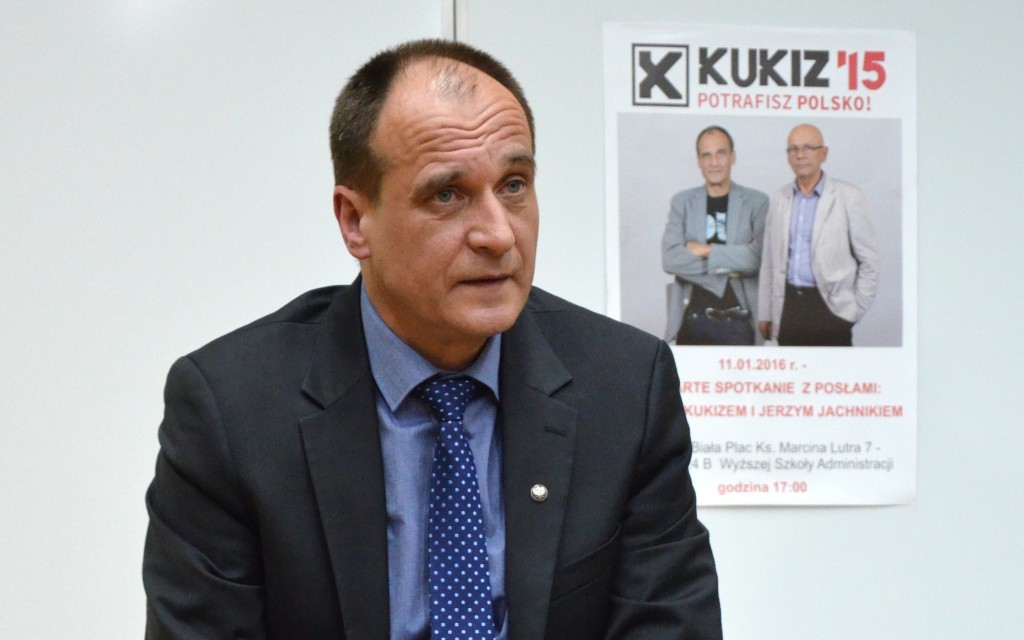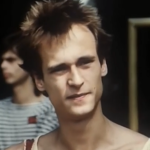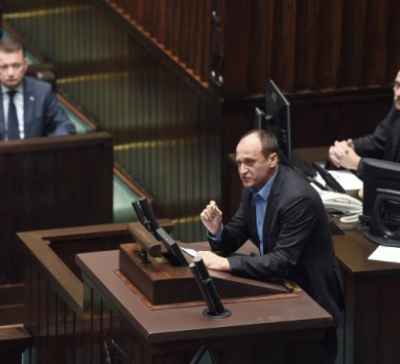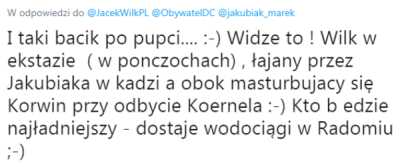Today’s politics are driven by two factors: the rise of anti-establishment populism and amplification of emotional stories caused by social media. From Movimento Cinque Stelle (M5S) in Italy, through Le Pen’s National Front and Germany’s Alternative für Deutschland, contemporary European politics are defined by new groups that come out of traditional groups and divisions.
The Polish example is Paweł Kukiz, the former music star, who became a political activist in 2011 and consequentially the head of the group KUKiZ ’15, which shortly became the third force in the Polish politics.
However, managing political career of the party is different from managing one’s own career of a musician. After the short and spectacular rise, Kukiz lost control over his party and his own public image effectively ending his party’s existence.
Although Paweł Kukiz will continue his involvement in politics, he has failed to form a long-standing force in the Polish political scene.
(1984-2011) Poland’s Top Musician
Paweł Kukiz comes from south-western Poland; his family roots are from Lviv, which is nowadays in Ukraine. He spent his high school years growing up in the town of Niemodlin.
He made his way to the top of Polish music boards in the early eighties, as a member of the band “Aya RL”. Their hit “Skóra” (Skin) was considered by Polish teenagers of the 1980s to be the generation’s anthem. His artistic and commercial success continued with the band “Piersi” through the 1990s and early 2000s.
Perhaps his first emotional voice on public politics was the CD “My już są Amerykany” (“We’re already ‘mericans”) with deep criticism of the transformation of Poland. Alcohol consumption, greedy clergy, and family violence – all of this was in how Paweł Kukiz saw his countrymen, in ten songs, in one of the most successful CD’s in history.
He criticized Poles for peripherialism in the song “Całuj mnie” (Kiss Me) of the album:
I bought jeans, shoes, a hat, and a belt
I’m leaving America – I’ve been there for 5 years
But I miss so much that
I can’t sleep, I can’t eat
My dream is to see your face
I’m carrying the bags with gifts
In the car with alu rim
The whole wallet filled with dollars
And you…
…kiss me – it’s such a lovely game
…kiss me – I’ll give you everything
The commercial and artistic success followed all nine of his consecutive records. Throughout his musical career, Kukiz was widely recognized by his characteristic voice, meaningful lyrics and ability to gain public attention.
Additionally, he played one of the main characters in the successful movie Girl Guide; hosted his own TV show, and participated in jury panels of national song contests.
To summarize the above, he became one of the most recognized faces in Polish show business which he used as the foundation for his political career.
(2011-2015) Steps into Politics and Single-Member Vote Districts Movement (JOW)
At the same time as he began his public activities in 2011, he became the Councilor of Lower Silesia Voivodship (region), focusing on folk culture and arts. Initially, he was supporting the centric-liberal Civic Platform; in 2005 he was a member of the honorary committee of Donald Tusk, recent President of the European Council and at the time the major political figure in Poland’s politics.
However, with time, the former musician’s public statements became increasingly anti-establishment. He called for the reforms of Polish politics, which he saw as being dominated by “corrupted parties”, including his former favorite one.
Being rather conservative (he was opposing the EuroPride parade and supportive of the Pro-life movement), Kukiz gradually drifted towards soft nationalism, which would later win him supporters and help him in building his political career.
However, his entrance into the political world was marked by the campaign for single-member vote districts.
The idea was, essentially, to divide the country into smaller voting districts and have members of the parliament being elected among locals, so that they are “close to the people”’, which comes from the UK’s system.
It became a proposal from the grassroots movement in the first decade of the 2000s, winning public interest as a way to improve Poland’s politics and make them “really democratic”.
In Kukiz’s own words, that would allow the country to drift away from being dominated by the big parties and their unelected leaders, “corrupted politicians”, “post-communist elites”, etc.
The movement gathered enough support to propose the referendum, but the referendum was rejected by the parliament which was at the time dominated by the Civic Platform. When the activists asked “what happened to the lists of support”, they heard that they were “shredded”.
They took the name “Zmieleni.pl” (“Shredded.pl” in Polish) and became a significant power on the Polish political scene, with Paweł Kukiz as the leader. His recognizable voice and face, as well as emotional speeches (marked with frequent vulgar words), became iconic of that time.
Zmieleni.pl transitioned Paweł Kukiz from local to national politics. No longer was he just a face and a voice; no longer was he a local figure; no longer was he responsible only for secondary, if not niche, topics like folk art. Kukiz grew into the nationally recognized figure, an icon of the unseen, the voice of the unheard, and the remorse of the unrespected.
Turning Point: The Presidential Campaign of 2015
In 2015 presidential election, Bronisław Komorowski, the president in the office, a representative of the governing party, an anti-communist activist, a conservative-liberal, a former speaker of the parliament, and a father of five, seemed to be a certain candidate.
The voting seemed to be a sheer formality, as his dominance (over 50% support) was obvious only the months before the election.
The freedom activist and the former editor-in-chief of the most influential Polish daily magazine, Adam Michnik, said one day on the radio that Komorowski would lose only if he
“hits a pregnant nun on a zebra, while driving under the influence”.
The absurdity of that statement represented how much everyone believed in his victory. The next weeks and months proved how disastrously wrong everyone was – which, to a large extent, was caused by Paweł Kukiz and his presidential run.
Personal popularity and the support of nationalist activists helped Kukiz to gather enough supporters to register himself as a presidential candidate. He steadily grew in the polls: from 3% only 3 months before the election to 13% the week before.
Kukiz was consistently attacking the “establishment” and “party-cracy”, the political scene divided between two large parties (Civic Platform and nationalist-conservative Law and Justice).
He presented himself as the “third force”. His campaign events were more of a show than a meeting; he spoke the language of average Poles. His message was clear: parties are the cause of all problems; they were nothing but corrupted oligarchies, seeking only to exploit “average people”.
He became especially popular with young voters, “25 and under, first-time voters” group, who appreciated his natural behavior, strong language, and anti-establishment attitude. His personal popularity and past achievements as a musician gave him an extra advantage over other (in total, as much as eight!) candidates running from outside of the two main political forces.
Kukiz came third in the first round with over 3 million votes, which accounted for 20,8% of the total support. In the emotional speech that followed this accomplishment, he thanked his supporters, blaming media and “the establishment” for creating the atmosphere of hatred and exclusion for him and his program.
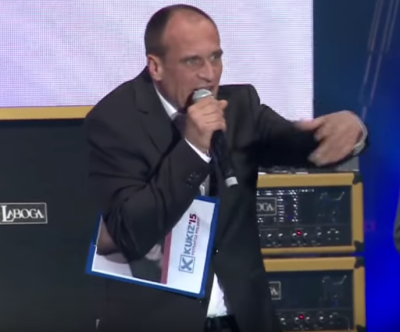
“We won. Without money, structures, media time; despised and pushed away (…) They laughed at us: who is Kukiz? Who is supporting him? What is his program? Now they see! Now they see you!” // Source: TVN
The presidential election was ultimately won by Andrzej Duda, the candidate from Law and Justice. Former minor staff officer in the office of the President Lech Kaczyński, a former member of the European Parliament. A younger, more handsome candidate, having better contact with the people than Komorowski, who initially wasn’t considered as a potential challenger.
Duda’s campaign was dynamic. He was hard-working and addressed ‘average people’ better than the president. Also, Komorowski’s staff was pathetic – they acted as if they had already won the election and didn’t need to bother. People’s emotions were with Andrzej Duda, who ultimately came out as a winner – 51,5% to 48,5% with a 55,3% turnout at ballots in the second voting.
Although Kukiz didn’t make it into the second round and refused to endorse any of the two winners, it was clear that he has created a new political group in the country. His voters – mostly young males from smaller cities and towns, anti-establishment, anti-immigrant, rather conservative, but at the same time with expectations regarding social transfers and welfare, didn’t seem to even exist before his election.
However, from that moment on, they would become a point of interest to each political strategist looking to drag that “swinging” part of the Polish society to their favor.
(2015) Run for Parliament
That was merely a start for the former musician. After this success, he created the political group KUKiZ’15. The name, according to his own words, was an acronym that stood for “Koniec Układu Korupcji i Złodziejstwa”, i.e. “End to corruption and thievery”).
He maintained his anti-establishment “for average people” attitude with strong anti-corruption and anti-political party message. He even promised not to take the money that, according to Polish law, the government is paying to all political parties that won more than 3% of the votes.
His candidates were from outside of the traditional political system: local activists, who were popular in the regions, but never wanted to become a part of the party-dominated political system.
The list of his candidates was very interesting, as it contained underrepresented or even forgotten groups of the Polish society:
-
‘Forgotten Heroes’ of the Solidarity Revolution, like Kornel Morawiecki (the legendary member of the hard, anti-communist, opposition and the father of today’s Prime Minister) or Grzegorz Długi – a lawyer, labor union activist and relentless defender of anti-communist heroes from the ‘80s
-
Nationalists, who cultivated traditions of Polish pre-war opposition (“endecja”), like Adam Andruszkiewicz, known for hate speech on gays, refugees, and elites.
-
Republicans, the group consisting of prominent intellectuals from leading universities, who were very active in big cities, running disputes, magazines, and portals. The most prominent and talented example of them – Stanisław Tyszka, a very successful deputy-speaker of the Parliament.
-
Libertarians, pro-gun, and anti-tax groups from the former Unia Polityki Realnej, far-right political wing, previously associated with Janusz Korwin-Mikke, the evergreen libertarian figure in Polish politics
-
Politically indifferent artists, like pro-marijuana activists, such as Kukiz’s fellow musician, rapper and adult-movie entrepreneur, Piotr ‘Liroy’ Marzec.
However, the groups that worked hard for his success were the nationalists and libertarians. Pushed away by the mainstream political establishment, but still very active in local communities, they made up the major part of his candidates and accounted for almost all of his local activity supporters.
The “hard work” of local campaigns – banners, leaflets, and presence in local media, was to a large extent carried out by this group.
(2016-2017) In the Role of Backbenchers
In the parliamentary election, KUKiZ ’15 candidates won 1,339,094 votes, 8.8%, and 42 seats in the parliament, coming in third after two predominant parties. The political commentators were shocked. The out-of-nowhere success, based (as they interpreted) only on the strong personality of the leader, was a complete surprise to them.
Although they realized that this group of voters has existed, they knew that good results in the presidential election of a single candidate is one thing, and building structures in all major regions, pulling together lists of candidates, and running a parliamentary campaign is another thing.
The supporters were largely young voters, just as in the presidential campaign. In the age group of 18-29, the supports of KUKiZ’15 made up 20.9% (according to another poll, 20.6%). This was almost twice as much as the average support.
Just to compare – the same party won only 2% of the support in the age group of 60+. These numbers illustrate the potential for the future and that the successful message can break through to the youngest voters.
Kukiz and his supporters initially took on the role of the “third party” (even if they hesitated to call themselves as such). They tried to avoid supporting or endorsing any of the political groups, sustaining the message on the “evil party system that is ruining Poland”. The group was almost never bound by the leader’s vote – in most cases, during the first year of parliament, they voted unanimously.
This was, to a large extent, the consequence of heterogeneity of the group: built by former labor union activists, nationalists, and libertarians, they didn’t have a “single voice” in the parliament.
Unlike major parties, they formed a loose group that was free to support whoever and whatever they chose to.
However, as the ruling party sought to stretch and then open-break the constitution and the rule of law, Kukiz himself and the members of his group largely supported each other.
They did not formally enter the ruling coalition; they were instrumental in the key votings, when they supported media reform (giving utter control over public media to the ruling party), constitutional court voting (subverting Polish constitutional tribunal to the ruling party), judiciary “reform” (attempting to give power over courts to parliamentary majority) and the new budget.
It is difficult to say what were the reasons and how anti-establishment party chose to be the “side-dish” (as they were called) to the parliamentary majority. The commentators are saying that they all knew what they were against, but not so much what they were for.
The inability to form a consistent and constructive program, the tensions between libertarians, republicans, and nationalists, as well as the pressure from the ruling party (which was interested in growing and was incentivizing KUKiZ’15 members to deflect to their side) all combined together created the pressure that the group couldn’t survive.
It began to disassemble, literally falling apart into pieces, almost from the first months of the parliament.
(2016-2019) Losing Control over the Party and His Own Public Image
What certainly didn’t help was Paweł Kukiz’s emotional nature, lack of education and experience in politics, as well as inability to build political structures and a narrative, which prevented him from long-term success on the political scene.
Inability to lead beyond emotional speeches became the predominant characteristic of the former leader. Emotions, so valuable during the campaign battles, would not be sufficient during the daily routine of the parliament.
Paweł Kukiz simply was not able to take one step more a build a sustainable political presence in the political scene.
His public communications became very emotional, filled with accusations and remorse; one of them became famous when he accused his former colleagues of being sexual fetishists. Later, he admitted that he wrote that one under the influence of alcohol during the weekend (“Saturday took control over my Twitter account”).
Kukiz was not only increasingly unable to control his political party, but he was also increasingly unable to control his own obsessions, addictions, habits, and tweets.
At the moment of writing of this article (September 2019), the party has only 16 members, out of 42 who were initially elected.
His electorate drifted towards nationalist conservatives. In European election of Spring 2019, the polls clearly showed that former Kukiz voters were supporting Konfederacja – the new right-wing populists, with their anti-LGBT, anti-tax, anti-abortion, and pro-gun program. Konfederacja was radical; it was strong outside of the big cities and became the “new Kukiz” – the party of protest, the anti-establishment group, whose radical messages were directed especially towards radical youth, the people rejecting cosmopolitism and liberalism in favor of anti-establishment, anti-immigrant, and anti-EU populism.
The major differentiator of “Konfederacja” versus “Kukiz”, only 3 years earlier, was a much better use of social media. While Kukiz’s communication with his supporters relied mostly on his well-recognized face and the voice of former musician, Konfederacja was investing in social media.
Attractive, colorful memes, vivid Facebook groups, popular Twitter accounts – they all diverted their attention towards Konfederacja. Kukiz became “the general without an army”, with 3.7% support, down from 8.8% in the parliamentary vote.
(2019) Going Forward: New Alliances
When the next election was approaching, Paweł Kukiz decided to form a coalition with the Polish People’s Party (PSL). PSL was traditionally strong in smaller towns and villages. Historically, formed from people living out of farming, they extended to the representatives of small businesses from outside of metropolitan areas.
During the previous (European) election, PSL formed the coalition with Civic Platform and faced a disastrous result in the regions where they previously dominated. That was, according to analysts and journalists, a consequence of drifting toward left-wing, liberal groups. The coalition of PO and PSL didn’t win much, but they lost support in villages and towns.
That’s why Władysław Kosiniak-Kamysz, the leader of the peasant’s party, decided to go on his own for the next election.
Well, not exactly on his own. It was Paweł Kukiz who joined PSL. Crippled by decreasing support, down from 42 mandates to only 21 (at the moment of constructing the new alliance), Kukiz faced a simple choice: coalition or destruction.
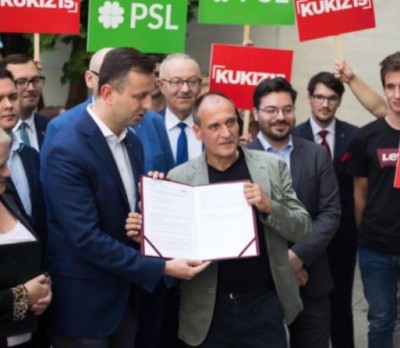
Paweł Kukiz and Władysław Kosiniak-Kamysz, the leader of the Polish Peasants Party, begin the run for the parliament in 2019. Although Kukiz lost his uniqueness and identity, he would likely win the seat // Source: PSL
Obviously, he chose coalition, which immediately cost him 5 MPs leaving the party. Critics would say that this coalition is the illustration of the Polish proverb about “the blind leading the lame”, two weak parties trying to build a synergy to pass the 5% support limit required for entering the parliament.
Others would argue – with KUKiZ’15 personal popularity and PSL’s support in the villages, they could actually still be a third or fourth power in the Polish political scene.
Although there are significant differences (e.g. PSL being a local establishment, Kukiz being an anti-establishment icon), they share criticism towards liberal values, soft nationalism, and attachment to traditional values.
Paweł Kukiz became the leader of PSL’s candidate list in his home voting district, Opole. Although it is very probable that he will win the mandate and became the MP again, clearly, the existence of his political party is under question now.
The Emotional Lesson of Paweł Kukiz
Kukiz can be considered as a typical product of “post-politics”, one of many types in the gallery of populists. Somewhere between Beppe Grillo, Thierry Baudet, Vladimir Zelensky, and Joseph Estrada. He is the symptom of the times we live in.
The narrative served by social media, along with young voters and high expectations, requires some characteristic ingredients: the hero must be popular, authentic and emotional; appealing to counter-establishment voters; easily focusing attention and strong in words and judgments.
Nevertheless, mainstream politicians should also consider the fact that voters, especially those who do not find their expectations addressed by the leading political forces, will be gradually turning to populists like Paweł Kukiz.
The good news, though, is that they don’t seem to be a strong or persistent part of the political puzzle in today’s democracies.
This article was originally published in Handbook of Storytelling: https://www.liberalforum.eu/wp-content/uploads/2019/12/HANDBOOK-OF-STORYTELLING.pdf



